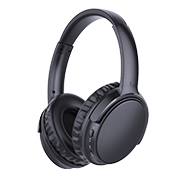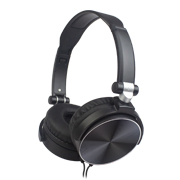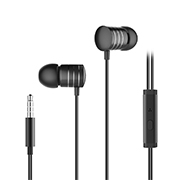
- factory address
D Building,Pioneer Park,3rd Industrial Zone Fenghuang Village, Fuyong Town,Baoan DistrictShenzhen,Guangdong,China
Learning Center: Protecting Your Hearing
People have a natural tendency to listen to music on headphones at much louder levels than they would on speakers. If you hope to avoid permanent hearing damage, it’s important to be careful not to listen at extremely loud levels or to listen for too long at moderately loud levels. Because HeadRoom amps must be capable of driving even the most inefficient dynamic headphones to satisfactory listening levels, the amps are able to drive headphones of average and high efficiencies to very high levels. As a result, you may not be listening at a safe level even though the volume control on the amp is less than half way up. Generally speaking, when listening to headphones, you should only turn up the volume to the point at which the sound isn’t too quiet.
The most common hearing damage caused by prolonged or excessively loud sound is called tinnitus. It manifests itself as a sustained ringing in the ears and can become a permanent condition. If you find that your ears are ringing or that there is a sensation of pressure or fatigue, give them a rest for a couple of days (or until they feel fresh). These symptoms are your body telling you that your ears need a break. Should you choose to ignore these symptoms, you are risking permanent hearing damage. As a general rule, sound pressure levels under 80 decibels will not damage hearing, even if listened to continually. On the other hand, anything over 100 decibels may cause permanent damage fast. Sound pressure levels anywhere in between can also be damaging. The louder the sound, the shorter the exposure time required to cause permanent damage.
Now, don’t fool yourself into thinking that you either have full-blown tinnitus or you don’t have it at all—you can get a slight case. For example, you might only notice your ears ringing in bed at night. Once you have a slight case of tinnitus, your ears are much more susceptible to further damage. So, if you get tinnitus, it’s important to be much more careful about exposure to loud sounds. Now that we’ve told you to be careful, don’t blame us if you blow it. If you have any more questions about hearing damage, call a doctor. Sorry to sound so sobering, but a lifetime of musical enjoyment requires ears in tip top shape.
“To prevent possible hearing damage, do not listen at high volume levels for long periods. Do not use the headphone while driving or cycling or in any situation where you should be able to hear other sounds. As a guide to setting the volume level, check that you can still hear your own voice, when speaking normally while listening with the headphones.”



















